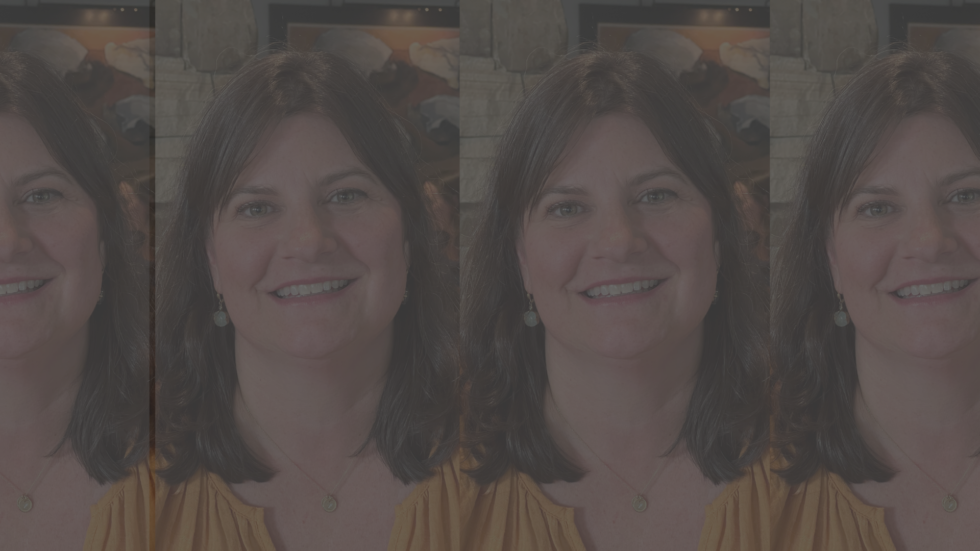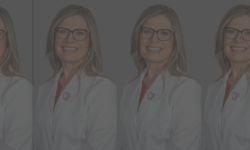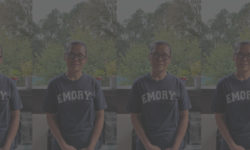
Following graduation from high school, Nurse Molly Vural earned her Bachelor’s Degree in Social Work from the University of Kansas. It wasn’t until a couple years later, when she was 28 years old, that she decided to pursue an Associate’s Degree in Nursing from Austin Community College.
Vural noted that she was fascinated by the human body, and found many of the courses she took in nursing school to be more interesting and engaging compared to those during her undergraduate years.
“I had to go back and take science courses like anatomy, physiology, [psychology] … microbiology, pharmacology, stuff that I had not taken in my undergrad,” Vural said. “They were all very interesting to me, the sciences. And then I took human anatomy as well, and human anatomy was actually very interesting but very challenging for me.”
Vural’s degree in social work was a great compliment to her nursing role, given that she was tasked with dealing with all different kinds of people. She added that, much like her experience with social work, it was very important to “learn to work with different people and different personalities.”
Though Vural loved her experiences in nursing school, it was not without hardship. The program was much more intense than her undergraduate years, coupled with the fact that she was completing prerequisite courses that most had already finished in college.
“But looking back, I’m really, really glad that I did it,” Vural said. “Because once you get that degree, I mean, it’s yours and you have that forever.”
Career
In the first couple months that Vural worked as a nurse, she noted the toll that working 12 hour shifts took on her mental health.
“When I was a brand new nurse, the first year, I was perpetually in a state of stress when I was at the hospital, because you’re learning so much new information,” Vural said.
In addition to the grueling working hours, Vural realized that the majority of practical education and experience is learned through working the job, not school. She found herself constantly stressed and hard on herself, noting that she was oftentimes her own worst critic.
A turning point occurred during her first year when one of her mentors told her that if she could not handle her stress properly, she would get burnt out. Vural described this interaction as a flip of a switch, where she decided that nursing was the career path she was meant for.
“I made it through the nursing program, this is what I was meant to do,” Vural said. “Just overcoming the stresses of the job — and not to say that I don’t have stressful shifts still, I definitely have. But I would say most times, even if it’s a stressful shift, I am better equipped to handle it now.”
During the course of a 12 hour shift, she is tasked with finishing her charting and tying up “loose ends” for the next shift. When she returns home, she is very tired, and she usually comes home, unwinds a bit, and goes to sleep.
Now, after being a registered nurse for almost 19 years, she says her mindset is more sustainable and she has found ways to get into the nursing routine.
“I mean it works itself out — you just kind of get used to it, and you just know the day after you’ve worked, you’re just gonna have just kind of need a little downtime,” Vural said. “But I mean a lot of people that I work with work three and four twelves a week, and they just do it.”
Community Impact
Nurse Vural takes care of patients in postpartum, the 6-8 weeks following delivery of the baby, and antepartum, the period of time following childbirth. She also helps with general gynecologic patients, which include women who have had hysterectomies.
Though Vural cares for a mix of short term post-operative and pregnant patients, many of her patients are long term. These patients are mothers who stay at the hospital for extended periods of time before or after delivery due to various complications.
“The longest patient that I can recall staying in was maybe a five month stay,” Vural said. “She was pregnant — this was at the beginning of my career — but forming bonds with the patients and seeing them bring a newborn into the world after you’ve taken care of them for weeks.”
Vural also recalled a time she formed a bond with a woman she took care of many years ago, who gave birth to triplet boys. In addition to her sons, who are now 12 years old, she had another baby, so she was frequently in the hospital.
There are, of course, difficult losses that Vural and her colleagues must cope with.
“One of the hardest things in nursing, in my area, is taking care of a patient after they’ve lost their baby,” Vural said. “And a lot of people don’t realize that that happens in our unit.”
To support patients who have lost their children after childbirth, one of Vural’s jobs is to be there for them and connect them to resources, such as a social worker or grief counseling.
“Don’t get me wrong — there can be a lot of sadness too,” Vural said. “That’s the side that people that are not in medicine or nursing don’t know.”
Another impact that Nurse Vural has made on her community is her role as a teacher. Mentoring nursing students and nurses with less experience has been one of the greatest responsibilities that comes with her job.
Vural also teaches expectant mothers and their families the basics of child care and childbirth education, which is a wonderful way to help a family.
“We’re helping new moms and older moms — moms that have already had children — getting them ready to bring their babies home,” Vural said. “There’s a lot of teaching, and my job is teaching them the basics of newborn care.”
Along with Vural, the hospital is staffed with other support staff for new mothers, including nursery nurses who instruct their patience on the importance of caring for their mental health and being aware of postpartum depression. Additionally, there are social workers that can easily connect a patient to a therapist or psychiatrist if needed.
“The nurses, working together with the nursery nurses and the social workers and the doctors — we’re trying to make these mother and father’s journeys from the hospital into the community as smooth as possible,” Vural said.







